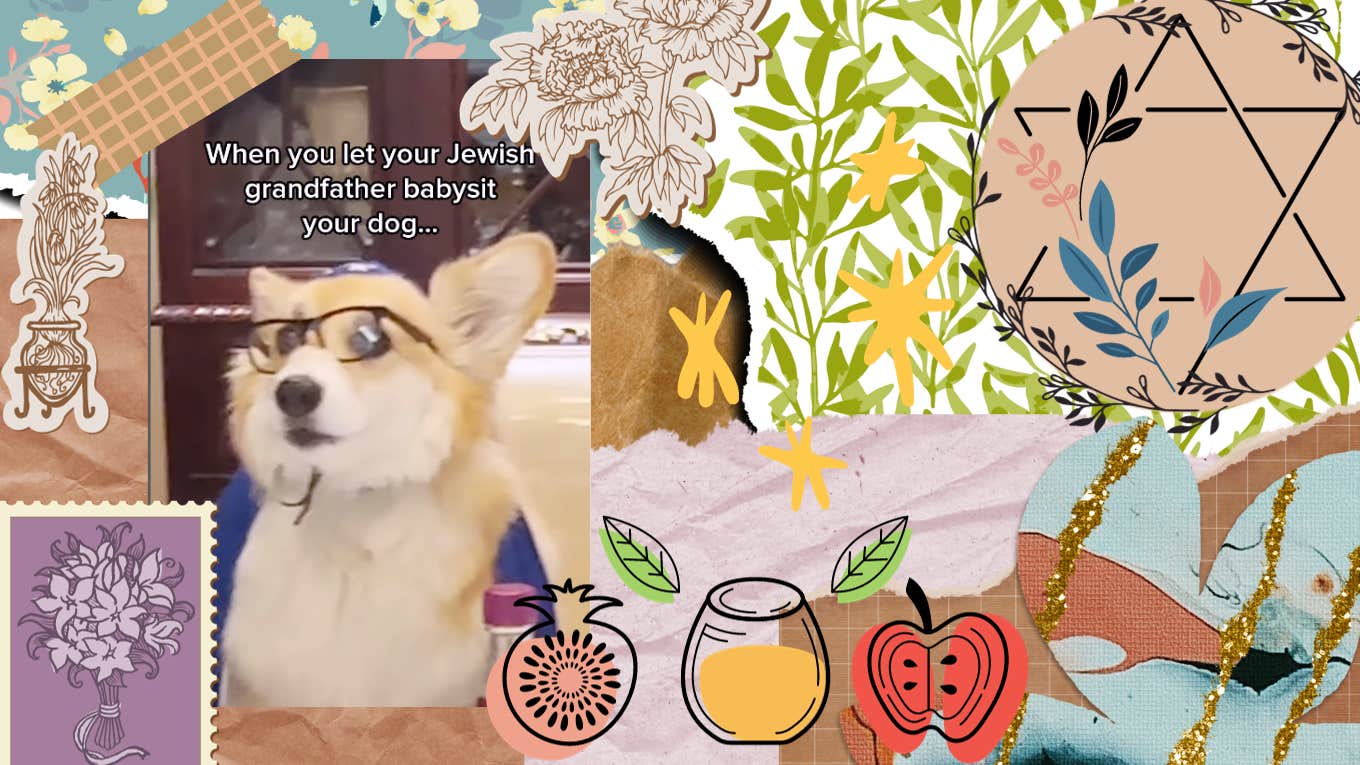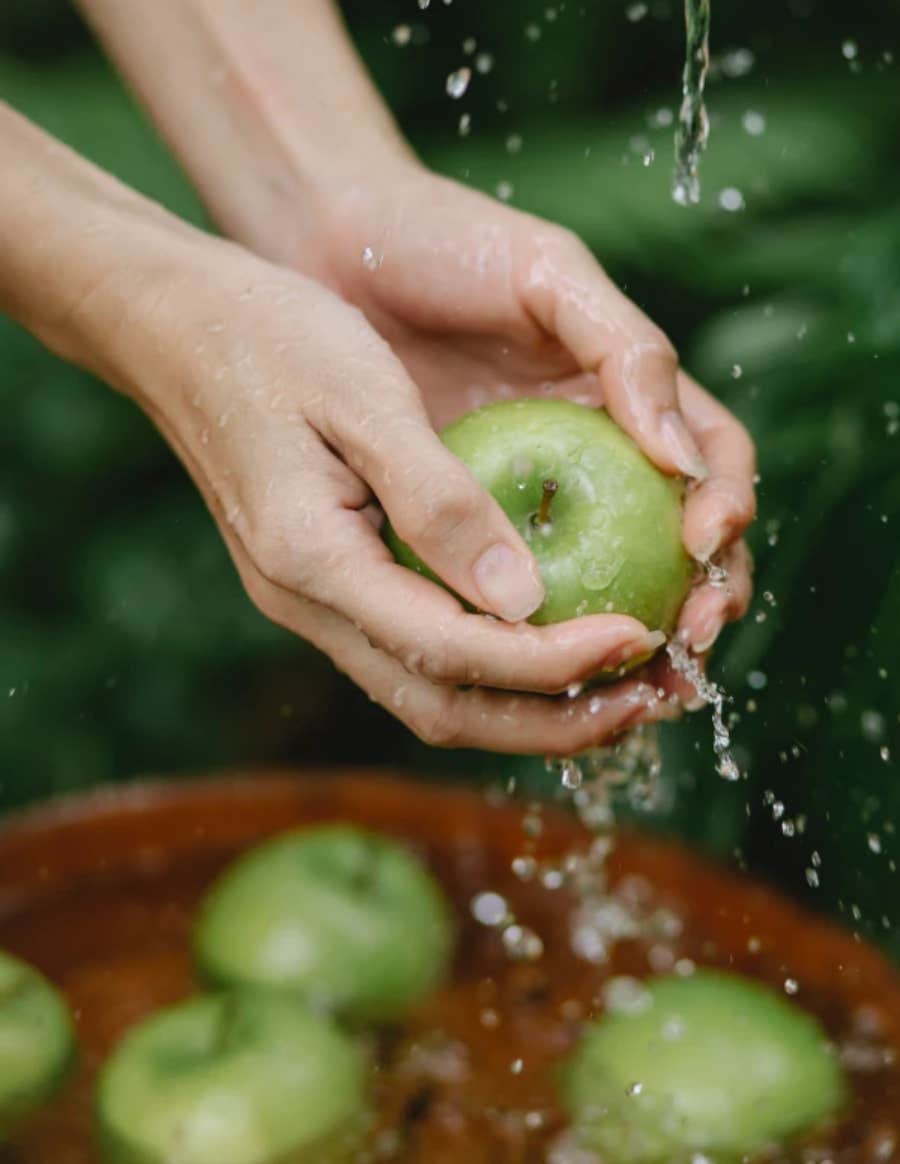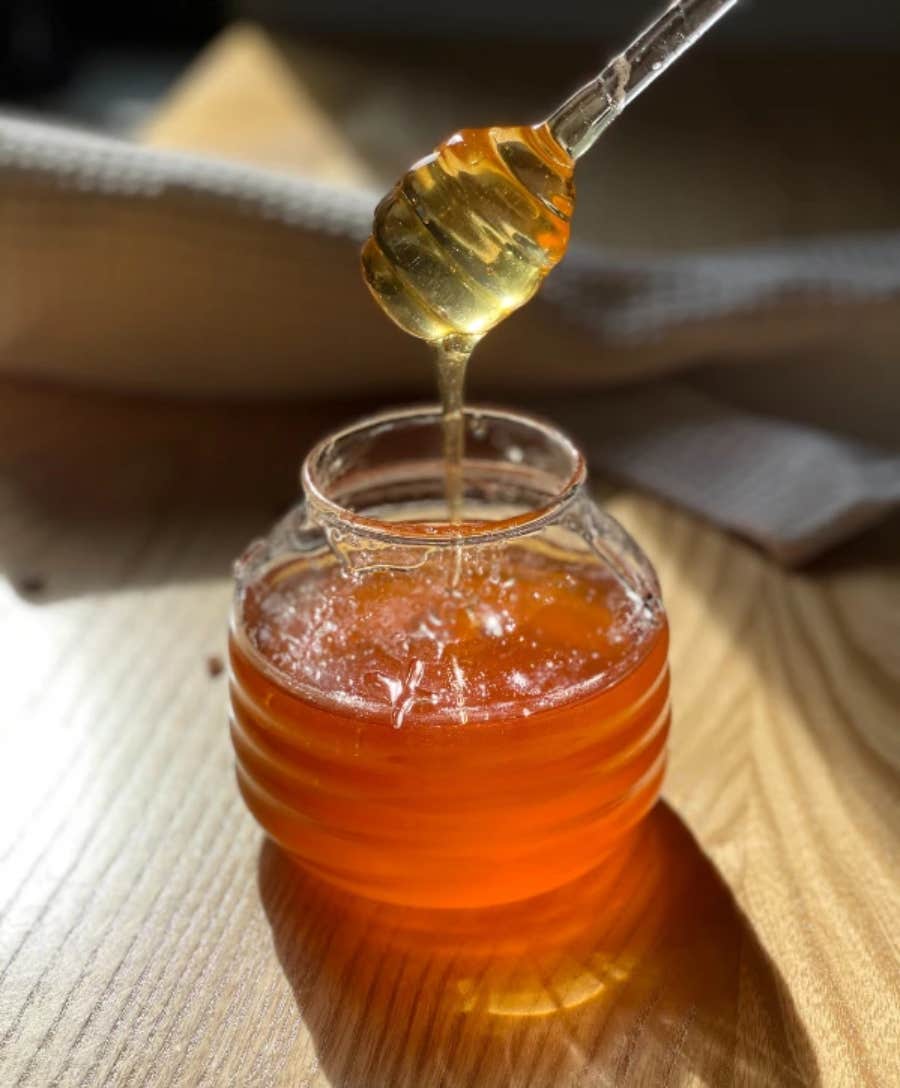Very Good Dog Wishes You The Sweetest Jewish New Year
Rosh Hashanah rituals rely on introspection for our past selves and maintaining hope for our future.
 Instagram, BooBoo Studio, and Panacreative Studio via Canva
Instagram, BooBoo Studio, and Panacreative Studio via Canva Maxine is an Instagram-famous corgi who lives with her owner in New York City. She recently embraced her Jewish heritage while spending time with her grandpa, getting ready to ring in the Jewish High Holidays.
When the sun sets on September 15, 2023, Rosh Hashanah, the Jewish New Year, will begin, marking the shift into the Hebrew year 5784. Rosh Hashanah, which translates to “head of the year,” is a time for looking inward, a time of renewal and atonement.
The very good dog wished everyone a sweet Jewish New Year.
Maxine and her Zadie, the Yiddish word for grandpa, shared their New Year ritual by way of an Instagram post. Maxine’s human captured the pup channeling her inner old Jewish man, wearing a head covering called a yarmulke, or a kippah, and a tallis, or prayer shawl, both of which are traditionally Jewish articles of clothing worn in temple.
Maxine sits at the head of the table, surrounded by loved ones. The table is set with grape juice, a wine substitute, and honey, which symbolizes a wish for an incoming sweet New Year.
Her grandpa blows the shofar, which is a ram’s horn, and Maxine howls back. According to the website MyJewishLearning, “Hearing the shofar’s call is a reminder for us to look inward and repent for the sins of the past year.”
Much of the Jewish New Year celebration is based on ritual. Even Jews who haven’t stepped foot in temple since their Bar or Bat Mitzvah — Hi, it’s me — can take solace in practicing the customs that represent the High Holidays. For me, and this is just one Jewish broad’s opinion, the meaning of the holiday is rooted in family, reflection, and setting intentions for the year to come.
Rosh Hashanah rituals rely on introspection for our past selves and maintaining hope for our future.
Perhaps the most notable New Year tradition is dipping apples in honey, a ritual Jews partake in to mark the start of a sweet New Year. The apple may symbolize creation and newness, while the honey represents sweetness.
 Photo: Any Lane / Pexels
Photo: Any Lane / Pexels
A major theme of Rosh Hashanah is the concept of “teshuvah,” or repentance. The origin of the word comes from Hebrew, and its direct translation is “return,” which refers to the return to God.
It’s a significant spiritual aspect of the holiday, one we put into action by considering how we’ve caused harm and how we will repair it.
The New Year is when we take accountability for our past actions and atone for our wrongs. We seek to understand ourselves better, looking at how we relate to those around us, and finding ways to show up for our loved ones, in our most authentic form.
 Photo: Yuliia Bas / Pexels
Photo: Yuliia Bas / Pexels
I have blurred memories of one Rosh Hashanah ritual that I’d forgotten. The ceremony is called “Tashlich,” and it’s a symbolic casting off of our sins by throwing bread into water.
In the hazy way that we can see ourselves as children in our mind's eyes, I can see myself standing at a river bank, a bag of stale bread in hand. I watched the bread sink into the water. I watched as mallard ducks flapped their wings along the shore.
Rosh Hashanah in Massachusetts meant the leaves on the trees were making their transition from lush green to fiery orange. Some years, I could see my breath in the air in front of me. Every year, my mother stood beside me, guiding me from one year to the next.
As with most Jewish holidays, and the overarching theme of Jewish existence, our celebration of the New Year is underlaid with some amount of grief and mourning. It is a time when we honestly consider our flaws and ask for forgiveness. It’s a time leading towards repentance, leading toward a future that has yet to fully unfold.
May it be sweet for us all.
Alexandra Blogier is a writer on YourTango's news and entertainment team. She covers Jewish culture, pop culture analysis and all things to do with the entertainment industry.
